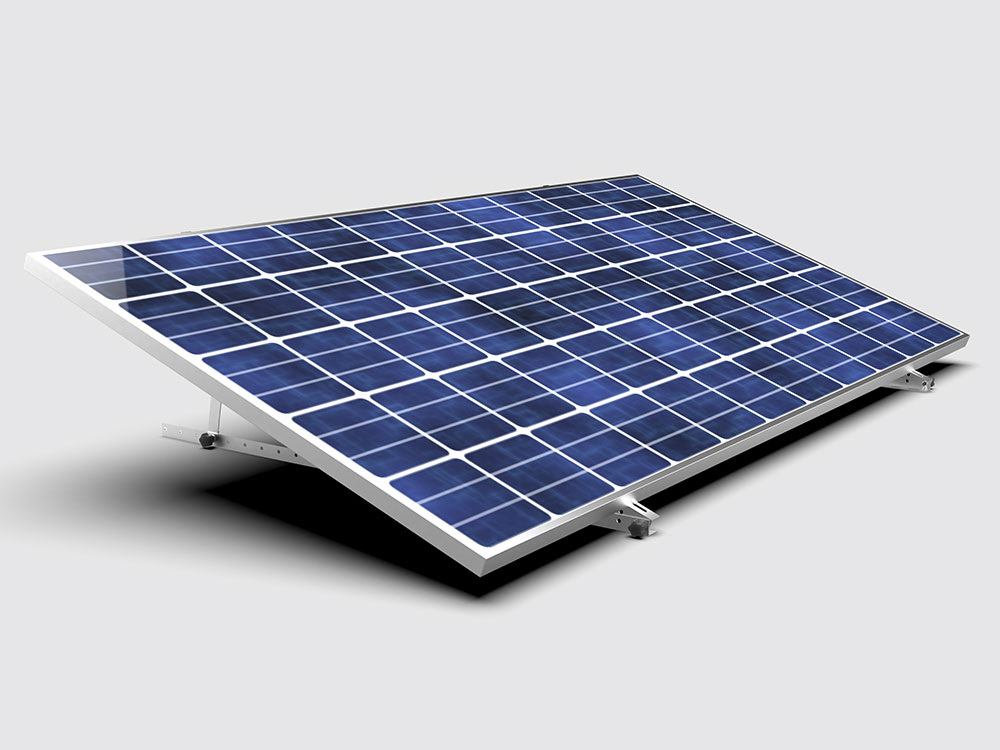Should Solar Mounting Accessories Be Galvanized or Aluminum Alloy?
When designing solar power plants, selecting the right mounting accessories is just as crucial as focusing on the performance of the solar panels themselves. These accessories serve as the “foundation” of the plant, directly impacting the system’s safety and stability throughout its 25+ year lifespan. In the market, hot-dip galvanized steel and aluminum alloy are the two most mainstream materials for mounting systems. Faced with these choices, many owners and installers wonder: Which one should they choose?
In reality, neither material is inherently superior or inferior; it all depends on suitability for your specific project. To make an informed decision, you need to consider the following aspects.
I. Core Differences: Balancing Strength and Corrosion Resistance
Simply put, this is a choice between a “heavyweight contender” and a “lightweight champion.”
Galvanized Supports: Utilizing high-strength steel as the base material, these undergo hot-dip galvanization to form a robust protective coating. Their core advantage lies in exceptional strength and stability, effortlessly withstanding harsh conditions like strong winds and heavy snow, providing a high level of security.
Aluminum Alloy Mounting System: Utilizes highly corrosion-resistant materials, forming an oxide layer on the surface to prevent internal rusting. Its core advantages are lightweight construction, corrosion resistance, and a clean, aesthetic appearance.
II. How to Choose Based on Your Project?
1. Consider the Installation Location: Roof or Ground?
For most residential, commercial, and industrial rooftop solar installations, aluminum alloy is actually the superior choice. Why? First, it’s lightweight.
Aluminum alloy weighs significantly less than steel, greatly benefiting roof load-bearing capacity—especially for older roofs with limited structural reserves, effectively reducing structural risks. Secondly, corrosion resistance. While rooftop environments typically lack severe ground corrosion, aluminum alloy’s natural rust resistance keeps it looking pristine long-term, maintaining a more attractive appearance!
For large-scale ground-mounted systems, hillsides, and other open terrain, galvanized steel supports hold greater advantages. In these scenarios, structural strength is paramount. The robust load-bearing capacity of galvanized steel allows for taller support structures, accommodating complex topography and withstanding stronger winds. Simultaneously, the reduced material usage makes its cost-effectiveness more pronounced.
2. Consider Geographic Location: Inland or Coastal?
If you’re in an inland area, standard C4 hot-dip galvanized supports provide ample corrosion resistance, eliminating rust concerns. However, coastal regions feature high humidity and salt content, creating a severe corrosive environment. In such cases, aluminum alloy significantly outperforms standard galvanized steel in salt spray resistance. While higher-grade galvanization exists, aluminum alloy remains virtually worry-free in these environments.
3. Budget and Long-Term Planning
Galvanized brackets typically offer lower upfront costs than aluminum alloy, making them a cost-effective choice for budget-constrained projects. Aluminum alloy brackets require a higher initial investment but deliver outstanding value over their lifecycle due to their maintenance-free, long-lasting properties.
III. Summary and Recommendations
Selecting solar mounting accessories is not a straightforward test question but a choice tailored to specific circumstances.
Prefer galvanized brackets for:
– Large-scale ground-mounted solar farms
– Cost-sensitive projects
– Locations with high wind/snow loads
Prefer aluminum alloy brackets for:
– Residential/commercial rooftop installations (especially with structural load requirements)
– Coastal high-corrosion environments
– Projects demanding high aesthetics and maintenance-free operation
Regardless of material choice, quality remains paramount. When selecting galvanized brackets, verify that the zinc coating thickness meets specifications. For aluminum alloy brackets, ensure the alloy grade and strength comply with standards. Choosing a reputable solar mounting accessory supplier is more critical than nitpicking over material costs. May this article assist you in building a robust and reliable “skeleton” for your solar power plant.








